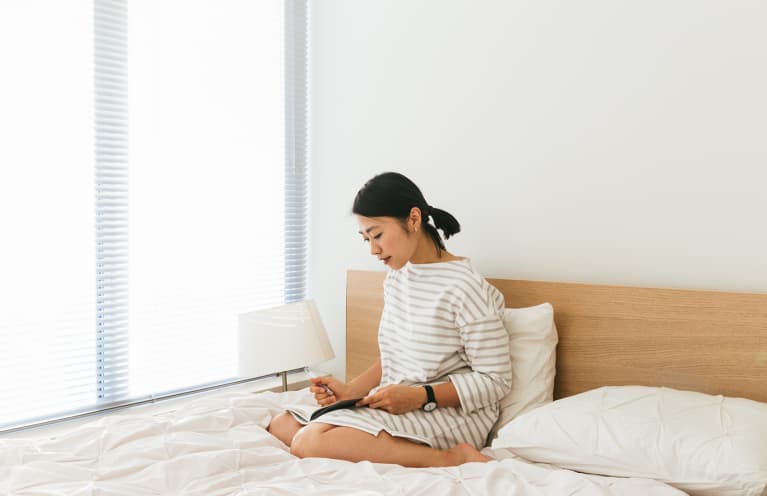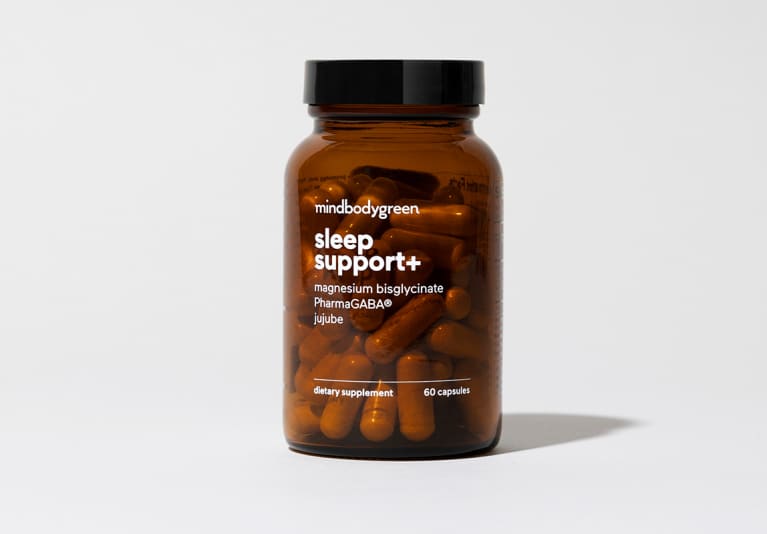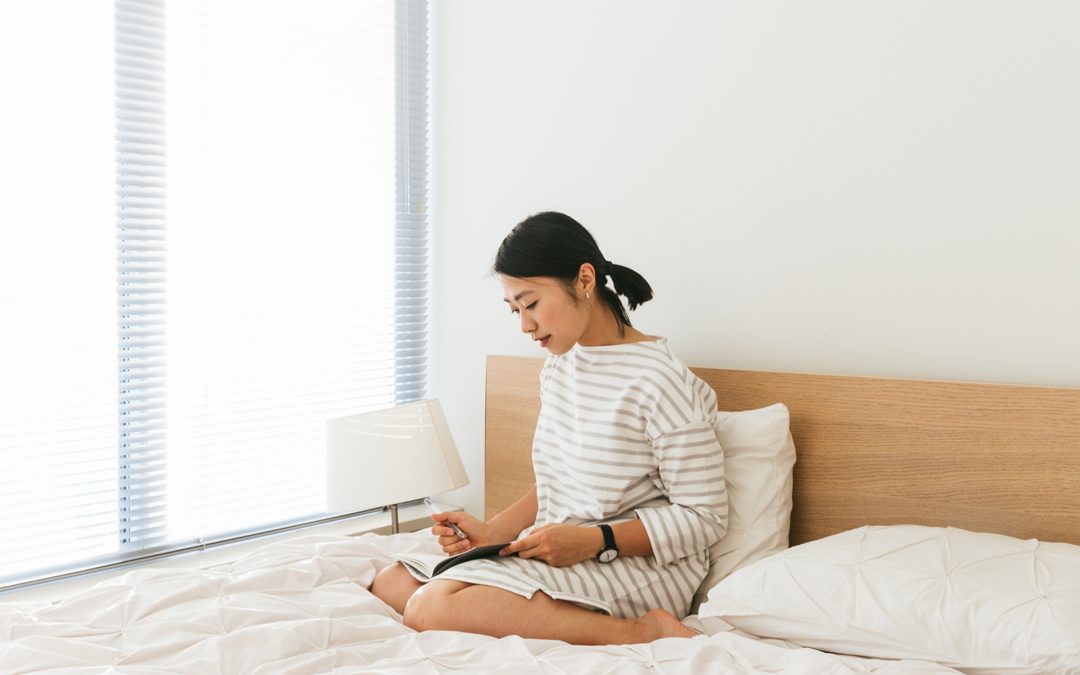
Our editors have independently chosen the products listed on this page. If you purchase something mentioned in this article, we may earn a small commission.
October 7, 2022 — 1:00 AM
Ready to snooze like a pro? Here, sleep and health experts of all kinds—from metabolic scientists to holistic psychiatrists—share their top tips for enhancing your sleep quality night after night.
“The single greatest predictor of a good night’s sleep is if I go to bed on an empty stomach,” Ben Bikman, Ph.D., a metabolic scientist with a doctorate in bioenergetics once said on the mindbodygreen podcast.
Research backs up his claim: In this recent study, researchers found that while eating before bedtime led to longer sleep duration, it also triggered more awakenings throughout the night. Translation: They slept more but also woke up more, meaning their rest was less efficient.
This doesn’t mean you should go to bed hungry, either. If you need a snack, make sure it’s a sleep-friendly one—here’s an easy go-to.
2. Call upon natural helpers.
If you’re known to pop a melatonin or two in order to drift into a dreamy sleep, you’re not alone. While experts deem melatonin beneficial for quickly adjusting your sleep schedule, they note that making it a daily habit can actually have some unpleasant side effects and it won’t necessarily improve your sleep quality.
Instead, make like functional medicine experts Amy Shah, MD and Will Cole, DC, and opt for a magnesium-based supplement like superstar sleep aid sleep support+ instead. The blend includes three standout ingredients:
sleep support+
The deep and restorative sleep you’ve always dreamt about*

PharmaGABA®: a widely studied neurotransmitter shown in clinical trials to enhance natural sleep quality.*
Jujube: a fruit used in Traditional Chinese medicine for calming and sleep-inducing properties.*
Magnesium bisglycinate: a highly absorbable form of magnesium that promotes a steady state of relaxation for deep and restorative sleep.*
This science-backed formula helps you fall asleep faster, stay asleep longer, and wake up feeling rejuvenated.* You don’t have to take our word for it—Here, customers sing this supplement’s praise as well.
3. Prep the sleep space.
The experts are in agreement: Prepping your bedroom for sleep is key. Keeping your bedroom dark will go a long way in promoting sleep quality, as will making sure it’s nice and quiet.
From there, you can add elements that make your space a dreamy place to be: We’re taking candles, dim nightstand lighting, and even an oil diffuser or pillow mist. Make sure your sheets are clean and up to par with your preferences. While investing in new splurge-worthy sheets or a new cloud-like mattress may seem frivolous to some, research shows that new bedding can significantly improve sleep.
We’d be remiss not to mention that leaving your screens out of this peaceful space will do wonders as well. Research shows that wavelengths of blue light can throw off the body’s natural circadian rhythm.
4. Set a consistent wake-up time.
Before you put your phone down for the evening, be sure to set your alarm—and try to keep your wake-up time the same every day. Board-certified sleep specialist Michael Breus, Ph.D., says even on the weekends, he’s still sure to get up at the same hour.
After all, studies have shown that irregular bedtimes can negatively affect the quality of your rest—so it’s best to keep it consistent when you can. If you need some extra sleep on the weekends, physician Eva Selhub, M.D. once told mbg to keep it to one hour max.
5. Set the temperature low.
If you have an air conditioner, you may consider opting for a cooler temperature before bed. While having your room at a cozy 72 degrees during the day might feel great during fall and winter months, you’ll want to knock it down for the sake of better sleep.
Holistic psychiatrist Ellen Vora, M.D. personally recommends keeping your bedroom temperature between 60 and 65 degrees Fahrenheit to help initiate sleep and improve sleep quality.
This may seem like a small shift, but it can make a huge difference. This study even calls the thermal environment—AKA room temperature—one of the most important factors that affect your sleep.
Sleep experts recommend relying on a healthy sleep routine which includes avoiding large late-night snacks, prepping your space, waking up at a consistent time, sleeping in a cool environment, and using natural and non-hormonal sleep aids if you could use extra support.

sleep support+
The deep and restorative sleep you’ve always dreamt about*
sleep support+
The deep and restorative sleep you’ve always dreamt about*

https://www.mindbodygreen.com/articles/what-experts-do-before-bed

